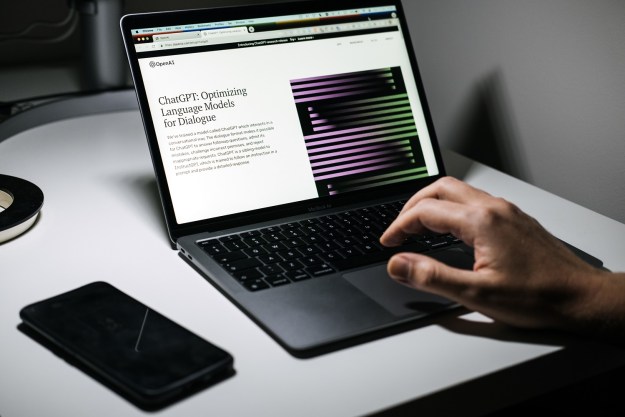OpenAI left a lot of jaws on the floor last month when it shared the first footage made by Sora, its AI-powered text-to-video generator.
While not perfect, the quality was extraordinary and left many wondering about the kind of transformational impact that such technology will have on the creative industries, including Hollywood.
OpenAI has yet to release Sora to the public — that’s expected to happen later this year — but the company is happy to continue impressing everyone by dropping regular Sora-generated videos onto its social media feeds.
The latest one to land looks like a clip from a fantasy movie and was generated from the simple text prompt: “An elephant made of leaves running in the jungle.”
OpenAI keeps dropping more insane Sora videos
These are 100% AI generated
9 reality bending videos
1. Elephant made out of leaves pic.twitter.com/tPsHNGbFPS
— Linus ●ᴗ● Ekenstam (@LinusEkenstam) March 18, 2024
OpenAI said that Sora did all the work and that the video output was not modified in any way.
Of course, any video creation tool worth its salt has to be adept at cat videos. Sora passed with flying colors when fed with the text prompt: “An adorable kitten pirate riding a robot vacuum around the house.”
6. An adorable kitten pirate riding a robot vacuum around the house
source: OpenAI TikTok pic.twitter.com/ClXadPPwpN
— Linus ●ᴗ● Ekenstam (@LinusEkenstam) March 18, 2024
Asked to create “Niagara Falls with colorful paint,” Sora came up with this extraordinary footage.
5. Niagra falls made out of colorful paint
source: OpenAI TikTok pic.twitter.com/GsVW6Mu1mu
— Linus ●ᴗ● Ekenstam (@LinusEkenstam) March 18, 2024
And check out this amazing clip prompted by: “POV video of a bee as it dives through a beautiful field of flowers.”
The OpenAI team dropped more wild Sora videos.
100% AI (minus sound)🤯
9 new ones:
1. POV of Bee pic.twitter.com/RjjSm6kcEB
— Min Choi (@minchoi) March 14, 2024
Sora can build videos up to a minute long “while maintaining visual quality and adherence to the user’s prompt,” OpenAI said when it unveiled the tool last month. The Microsoft-backed startup, which created a stir last year with its AI-powered ChatGPT chatbot, said it’s decided to share its research progress with Sora early “to learn from feedback and give the public a sense of what Al capabilities are on the horizon.”
It also said that it used publicly available data and licensed data to train Sora. The issue of how generative AI models are trained is a controversial one, with writers and artists demanding compensation in instances where their work is used by AI companies such as OpenAI. A number of lawsuits brought by creators are already working their way through the courts, prompting AI firms to seek licensing deals with media giants for trouble-free AI training.
Editors' Recommendations
- ChatGPT shortly devolved into an AI mess
- OpenAI and Microsoft sued by NY Times for copyright infringement
- OpenAI is on fire — here’s what that means for ChatGPT and Windows
- OpenAI’s new tool can spot fake AI images, but there’s a catch
- Most people distrust AI and want regulation, says new survey



